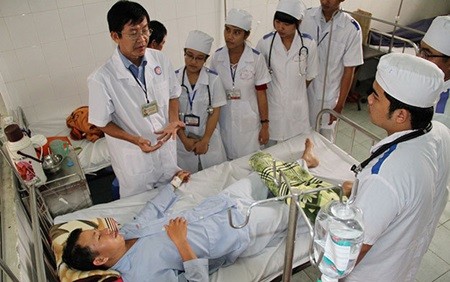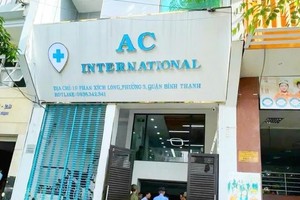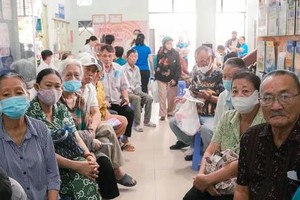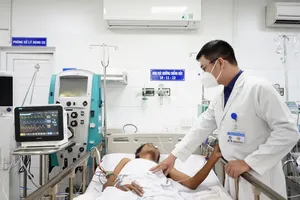The increasing need for health care would be a major challenge for the health sector this year, as would changes in disease models, population ageing and newly emerging diseases such as avian influenza types H5N1 and H7N9 and the Ebola virus, Minister of Health Nguyen Thi Kim Tien said yesterday at an online conference.

At the local level, the health care system failed to meet demand in terms of human resources and medical facilities. Moreover, there were too few beds in many regions and the balance between medical specialities varied between localities, according to the health minister.
Last year, the health ministry reported that the health sector had met two targets set by the National Assembly. The number of beds per 10,000 people was 23 – higher than the target of 22.5 – while the malnutrition rate of children under five was reduced to 15 per cent, below the goal of 15.5 per cent.
The sector also achieved 16 of 18 targets set by the Prime Minister. However, they did not meet the goal of reducing the fatality rate of children under five to 21 out of 1,000 or ensuring that 73 per cent of the population was covered by health insurance.
By the end of 2014, the country had 7.8 doctors and 1.9 university pharmacists per 10,000 residents. Doctors worked at 78 per cent of the country's communal health stations while 95 per cent of communes and hamlets had medical staff.
Deputy Prime Minister Vu Duc Dam gave instructions to the sector, asking the health ministry to focus on reducing hospital overloading and improving service quality.
He also told the sector to improve communal health stations and human resource training; reform administrative procedure and drug bidding mechanisms; and expand health insurance coverage.
























